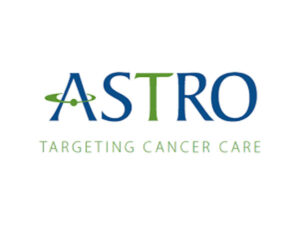As a freshly-minted director of H. Lee Moffitt Cancer Center & Research Institute, John Cleveland has two items on top of his to-do list: Rework the center’s leadership, and deal with a crippling pandemic.
Radiation visits—much like preventative screenings, surgery, chemotherapy and screening—were delayed or canceled at the peak of COVID-19 in the United States.
Nicole Kuderer and colleagues are to be congratulated for their report—in The Lancet and at the ASCO 2020 Annual Meeting—on the impact of COVID-19 on a cohort of patients with cancer.
The first COVID-19 patient walked into a Mount Sinai ER on March 1.
Opdivo + Yervoy combination receives FDA approval for first-line mNSCLC (PD-L1 tumor expression ≥1%)
FDA has approved the combination of Opdivo (nivolumab) plus Yervoy (ipilimumab) as first-line treatment for patients with metastatic non-small cell lung cancer whose tumors express PD-L1(≥1%), as determined by an FDA-approved test, with no epidermal growth factor receptor or anaplastic lymphoma kinase genomic tumor aberrations.
FDA has expanded the indication of pomalidomide (Pomalyst) to include adult patients with AIDS-related Kaposi sarcoma after failure of highly active antiretroviral therapy, and Kaposi sarcoma in adult patients who are HIV-negative.
FDA has granted an accelerated approval to rucaparib (Rubraca) for patients with deleterious BRCA mutation (germline and/or somatic)-associated metastatic castration-resistant prostate cancer who have been treated with androgen receptor-directed therapy and a taxane-based chemotherapy.
FDA has approved ripretinib (Qinlock) Deciphera Pharmaceuticals LLC for adult patients with advanced gastrointestinal stromal tumor who have received prior treatment with three or more kinase inhibitors, including imatinib.
FDA has approved Tecentriq (atezolizumab) as a first-line (initial) treatment for adults with metastatic non-small cell lung cancer whose tumors have high PD-L1 expression (PD-L1 stained ≥ 50% of tumor cells [TC ≥ 50%] or PD-L1 stained tumor-infiltrating [IC] covering ≥ 10% of the tumor area [IC ≥ 10%]), as determined by an FDA-approved test, with no EGFR or ALK genomic tumor aberrations.
FDA has approved olaparib (Lynparza) for adult patients with deleterious or suspected deleterious germline or somatic homologous recombination repair gene-mutated metastatic castration-resistant prostate cancer, who have progressed following prior treatment with enzalutamide or abiraterone.









